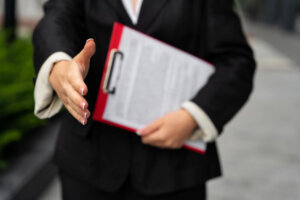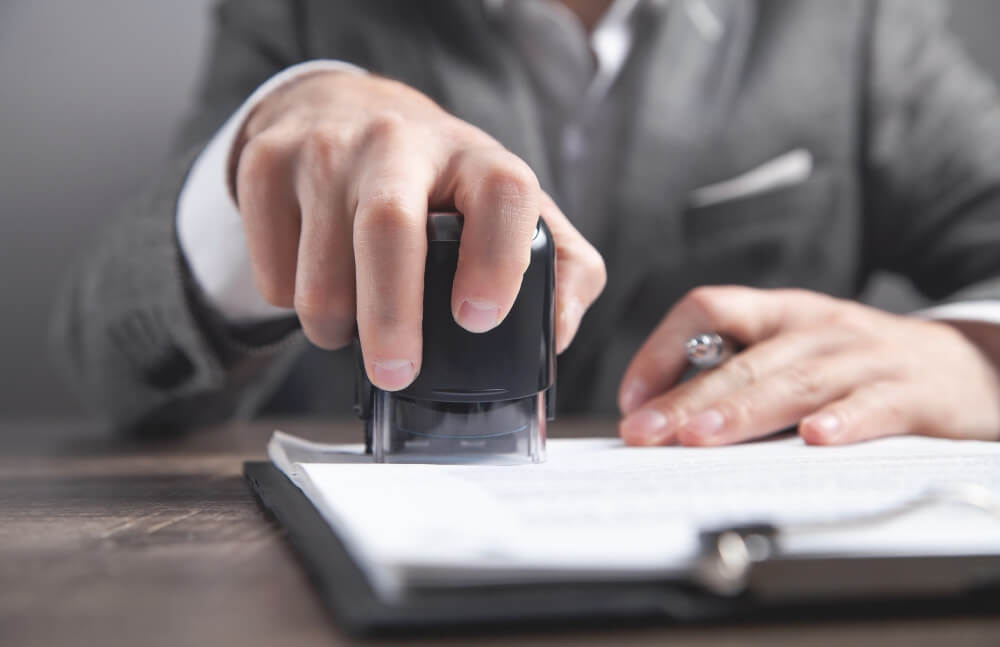📝 طمأنينتك تبدأ من هنا!
🤝 تواصل الآن مع كاتب عدل موثوق — Talk To Authorized Notary Now.
Did you know a public notary Abu Dhabi can save you from legal headaches? Every signed document matters — but without proper notarization, it might not hold up in court. Whether you’re sealing a business deal or safeguarding your personal affairs, public notary services in Abu Dhabi ensure your paperwork is secure, compliant, and enforceable.
What is public notary abu dhabi Services?
Public notary services in Abu Dhabi are official legal services provided by the Abu Dhabi Judicial Department to validate, witness, and certify your documents. These services ensure your paperwork is authentic, legally binding, and accepted in courts and government offices.
Typical services include:
-
Verifying identities and witnessing signatures.
-
Notarizing contracts, agreements, and powers of attorney.
-
Issuing certified true copies of documents.
-
Authenticating corporate and personal documents for local and international use.
The notary’s role is to protect you by ensuring that all parties understand and consent to the document’s terms, and that it complies with UAE law.
Unknown Facts About Public Notaries in Abu Dhabi You Should Know
-
They’re Judicial Officers — Public notaries in Abu Dhabi are appointed under the Judicial Department, ensuring impartial and lawful service.
-
E-notary Options Exist — Abu Dhabi offers online notarization for certain documents, making the process faster and more convenient.
-
On-site Services Are Possible — In special circumstances, a notary may visit your location, though extra fees apply.
-
Documents Must Be in Arabic — All documents must be drafted or translated into Arabic before notarization.
-
They Can Refuse Requests — If a document is illegal, incomplete, or violates public policy, the notary can lawfully decline to notarize it.
These insights help you prepare better and avoid surprises when using notary services in Abu Dhabi.
Can Expats Use Public Notary Services in Abu Dhabi? Here’s the Truth
Yes — expats can fully use public notary services in Abu Dhabi, and the process is designed to accommodate both UAE nationals and foreign residents. However, there are a few important things to know:
-
Expats must present a valid passport and/or Emirates ID at the time of notarization.
-
All documents must be in Arabic or accompanied by a certified translation.
-
Some documents, especially those meant for use abroad, may also require further attestation from the Ministry of Foreign Affairs.
-
Notaries may request proof of legal residence or a valid visa if required by the document type.
By preparing the right documents and translations, expats can easily notarize contracts, powers of attorney, and more — ensuring their paperwork holds legal weight in the UAE and beyond.
Do You Really Need a Lawyer or Just a Notary?
Many people in Abu Dhabi wonder if a public notary is enough, or if hiring a lawyer is necessary. Here’s the distinction:
-
Public Notary — Verifies your identity, witnesses your signature, and certifies that the document complies with UAE formalities. They don’t provide legal advice or draft complex agreements for you.
-
Lawyer — Advises you on your rights, drafts customized contracts, and negotiates terms to protect your interests.
If your document is standard (like a power of attorney or property lease), the notary alone is sufficient. But if your situation is complex, involves disputes, or requires negotiation, consulting a lawyer first is wise — then have the final document notarized.
In short: the notary ensures legality, but a lawyer ensures your best interests.
How Technology is Changing Notarization in Abu Dhabi
The way notarization works in Abu Dhabi has evolved thanks to technology, making the process faster, more convenient, and accessible. Here’s how:
-
E-Notary Services — You can now notarize certain documents online through secure government portals without visiting an office.
-
Digital Signatures — Electronic signatures are legally recognized in many cases, provided they follow UAE security standards.
-
Online Appointment Booking — Book your notary appointment and upload documents ahead of time to save waiting hours.
-
Automated Systems — New systems reduce paperwork and errors by streamlining the process electronically.
-
Virtual Consultations — Some notaries offer video calls to explain procedures or verify details remotely.
These advancements help residents and expats handle legal paperwork efficiently — aligning with Abu Dhabi’s smart city vision.
Emergency Notarization: What to Do When You’re Short on Time
Sometimes, you need a document notarized urgently — but rushing without a plan can cause delays. Here’s what to do:
-
Book an Appointment ASAP — Use the Abu Dhabi Judicial Department’s online portal or hotline to secure the earliest slot.
-
Prepare Documents Properly — Ensure your document is complete, in Arabic (or with certified translation), and ready to sign.
-
Bring All Required IDs — Have your Emirates ID, passport, and any supporting papers on hand to avoid rejection.
-
Request Priority Service — Some offices offer expedited or priority lanes for emergencies, often at an additional fee.
-
Consider a Mobile Notary — In certain cases, a notary can come to your location, saving travel time.
Planning ahead, even under pressure, ensures you get your document notarized quickly and correctly.
How to Authenticate Foreign Documents in Abu Dhabi Through a Notary?
If you need to use a foreign document in the UAE, it must be properly authenticated to be legally recognized. Here’s the process in Abu Dhabi:
-
Step 1: Legalization in Home Country
Have the document certified by the relevant authority in its country of origin (like a foreign ministry or notary). -
Step 2: UAE Embassy Attestation
Take the legalized document to the UAE embassy or consulate in that country for further attestation. -
Step 3: Ministry of Foreign Affairs (MOFA)
Once in Abu Dhabi, have the document attested by the UAE Ministry of Foreign Affairs. -
Step 4: Notarization
Finally, the Abu Dhabi public notary can authenticate it, ensuring it meets local requirements.
Following these steps ensures your foreign documents are valid and enforceable under UAE law.
How to Verify if a Notary in Abu Dhabi is Official and Licensed?
To ensure your documents are handled legally and professionally, it’s essential to work with a licensed public notary. Here’s how to verify:
-
Check the Judicial Department Website — The Abu Dhabi Judicial Department lists authorized notaries and their office locations.
-
Look for Official Credentials — Licensed notaries will have an official ID, seal, and authorization certificate displayed in their office.
-
Verify Through Your Appointment — If you book through the official portal or call center, you’re automatically matched with a licensed notary.
-
Ask for Proof — You can politely request to see their license or employee ID issued by the Judicial Department.
-
Avoid Middlemen — Always deal directly with the notary office to avoid fraud or inflated fees.
These steps help protect you from unauthorized services and ensure your documents remain valid.
What to Expect During Your First Visit to a Public Notary in Abu Dhabi?
If it’s your first time visiting a public notary, here’s what typically happens so you can feel prepared:
-
Check-In — You’ll present your valid ID (like Emirates ID or passport) at the reception and confirm your appointment.
-
Document Review — The notary will examine your document to ensure it’s complete, legal, and properly drafted (in Arabic or with a certified translation).
-
Identity Verification — Your identity and, if applicable, witnesses’ identities will be verified.
-
Sign in Front of the Notary — You must sign the document in the notary’s presence for it to be valid.
-
Payment of Fees — You’ll pay the official notarization fee, often by card or cash.
-
Receive Your Certified Document — After stamping and signing, the notary returns the certified document to you.
The whole process is usually straightforward and can take as little as 15–30 minutes if you’re prepared.
How Public Notary Services Support Business Formation in Abu Dhabi?
Starting a business in Abu Dhabi involves legal formalities — and public notary services play a key role in making it official. Here’s how they support entrepreneurs:
-
Certifying Memorandum of Association (MOA) — The notary authenticates the MOA, a required document for company registration.
-
Notarizing Shareholder Agreements — Agreements between partners or shareholders are certified to ensure they are enforceable.
-
Validating Power of Attorney (POA) — If you appoint someone to act on your behalf during formation, the POA must be notarized.
-
Certifying Board Resolutions — For corporate actions, board decisions may need to be formally notarized.
-
Legal Compliance — The notary ensures all business documents meet UAE legal standards, protecting you from disputes later.
By formalizing these critical documents, public notary services provide the legal foundation your business needs to operate confidently in Abu Dhabi.
Top 5 Mistakes People Make at the Notary Office in Abu Dhabi
Even simple errors can delay or complicate your notarization process. Here are the top mistakes to avoid:
-
Arriving Without Proper ID — Forgetting your Emirates ID, passport, or required documents can halt the process entirely.
-
Bringing Incomplete or Incorrect Documents — Drafts with missing signatures, pages, or details cannot be notarized.
-
Ignoring the Language Requirement — All documents must be in Arabic or accompanied by an official certified translation.
-
Not Booking an Appointment — Many offices require appointments; walk-ins may face long waits or be turned away.
-
Using Unlicensed Services — Working with unauthorized agents or “middlemen” can result in invalid documents and unnecessary fees.
By preparing thoroughly and following the rules, your visit to the notary office can be smooth and efficient.
FAQ
Can expats use public notary services?
Absolutely. Expats can notarize documents, provided they bring valid ID and translated documents if needed.
How long does the notarization process take?
If you’re prepared, most appointments take between 15 and 30 minutes.
Can I notarize documents in English?
No, documents must be in Arabic or include a certified Arabic translation.
What types of documents cannot be notarized?
Any illegal, fraudulent, incomplete, or informal agreements without legal standing will be rejected.
Conclusion
A public notary Abu Dhabi is more than just a stamp on paper — it’s your assurance that documents are legally sound, properly witnessed, and fully compliant with UAE law. Whether you’re an expat, a business owner, or simply safeguarding personal matters, understanding how notary services work helps you avoid mistakes and save time. Prepare well, follow the rules, and let the notary secure your peace of mind.
📝 طمأنينتك تبدأ من هنا!
🤝 تواصل الآن مع كاتب عدل موثوق — Talk To Authorized Notary Now.







